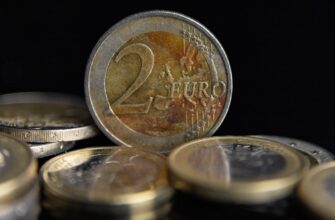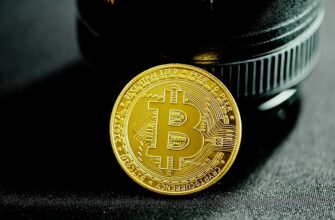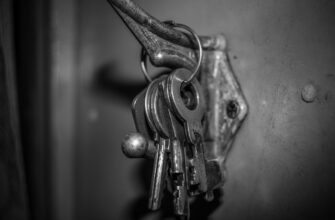- Navigating USDT Sales Without KYC in Hanoi
- Why Some Seek KYC-Free USDT Sales in Hanoi
- Methods to Sell USDT Without KYC in Hanoi (With Risks)
- 1. Peer-to-Peer (P2P) Platforms
- 2. Crypto ATMs (Limited Availability)
- 3. Over-the-Counter (OTC) Dealers
- 4. Decentralized Exchanges (DEXs)
- Critical Risks of KYC-Free USDT Sales
- Safety Checklist for Hanoi Traders
- KYC Alternatives: Safer Options in Hanoi
- FAQ: Selling USDT in Hanoi Without KYC
- Q1: Is selling USDT without KYC legal in Vietnam?
- Q2: Where can I find reliable P2P buyers in Hanoi?
- Q3: What’s the maximum I can sell via Bitcoin ATMs?
- Q4: How do I avoid scams during meetups?
- Q5: Are there taxes on non-KYC USDT sales?
- Q6: Can I convert USDT to cash at gold shops?
- Final Recommendations
Navigating USDT Sales Without KYC in Hanoi
As Vietnam’s cryptocurrency adoption grows, many in Hanoi seek ways to sell USDT (Tether) without KYC (Know Your Customer) verification. While this approach offers privacy benefits, it carries significant legal and security risks. This guide explores practical methods, essential precautions, and safer alternatives for Hanoi residents. Note: Vietnamese regulations require licensed exchanges to implement KYC, and bypassing it may violate anti-money laundering laws. Always prioritize compliance and security.
Why Some Seek KYC-Free USDT Sales in Hanoi
While KYC is standard for security, motivations for avoiding it include:
- Privacy concerns: Avoiding personal data sharing
- Speed: Bypassing verification delays
- Accessibility: For users without formal ID documents
- Perceived anonymity in transactions
Important: Vietnam’s State Bank has warned that unregulated crypto transactions may violate Decree 88/2019/ND-CP on anti-money laundering.
Methods to Sell USDT Without KYC in Hanoi (With Risks)
Caution: These methods involve higher fraud risks and potential legal issues. Always verify counterparties.
1. Peer-to-Peer (P2P) Platforms
- Platforms: LocalBitcoins, Paxful, or Vietnamese Telegram groups
- Process:
- Find Hanoi-based buyers
- Agree on price/payment (cash/Vietnamese bank transfer)
- Use platform escrow if available
- Meet in secure public locations
- Risk: High scam potential; no transaction protection
2. Crypto ATMs (Limited Availability)
- Select Bitcoin ATMs in Hanoi (e.g., in District 1) may support USDT sales
- Typically require phone verification only
- Check machines via CoinATMRadar
- Limitation: Low transaction limits (2-5 million VND)
3. Over-the-Counter (OTC) Dealers
- Local crypto groups on Zalo/Facebook with trusted dealers
- Face-to-face cash transactions
- Precaution: Verify dealer reputation via community feedback
4. Decentralized Exchanges (DEXs)
- Platforms like Uniswap or PancakeSwap
- Swap USDT for privacy coins (e.g., Monero), then sell locally
- Complexity: Requires technical knowledge; not direct fiat conversion
Critical Risks of KYC-Free USDT Sales
- ⚠️ Legal Penalties: Potential fines under Vietnamese AML laws
- ⚠️ Scams & Fraud: Fake buyers, payment reversals, or robbery
- ⚠️ No Recourse: Zero protection if funds are stolen
- ⚠️ Tax Implications: Unreported transactions may violate tax laws
- ⚠️ Exchange Bans: Wallets linked to non-KYC sales could be frozen
Safety Checklist for Hanoi Traders
If proceeding without KYC:
- Meet in daylight at crowded places (e.g., coffee shops in Hoàn Kiếm)
- Verify buyer’s identity via social profiles
- Use SMS-based transaction alerts
- Start with small amounts (<5 million VND)
- Avoid “too-good-to-be-true” offers
- Never share private keys or wallet access
KYC Alternatives: Safer Options in Hanoi
- Licensed Exchanges: Binance (with Vietnam KYC), Remitano, or Fiahub
- Brokerages: OnRamper, which partners with local banks
- Benefits: Dispute resolution, fair pricing, and legal compliance
FAQ: Selling USDT in Hanoi Without KYC
Q1: Is selling USDT without KYC legal in Vietnam?
A: While not explicitly illegal, it violates AML regulations requiring financial platforms to verify identities. Individuals may face scrutiny for large transactions.
Q2: Where can I find reliable P2P buyers in Hanoi?
A: Join moderated Vietnamese crypto communities on Telegram (@BitcoinVietnam) or Facebook groups with verified member lists. Always check transaction history.
Q3: What’s the maximum I can sell via Bitcoin ATMs?
A: Most Hanoi ATMs impose 2-10 million VND daily limits without ID. Higher limits require verification.
Q4: How do I avoid scams during meetups?
A: Confirm payment receipt notifications before releasing USDT. Use banks with instant alerts (e.g., TPBank, MB Bank). Bring a companion.
Q5: Are there taxes on non-KYC USDT sales?
A: Yes. Vietnam taxes crypto profits at 0.1-20%. Non-reporting risks penalties during audits.
Q6: Can I convert USDT to cash at gold shops?
A: Some Hanoi jewelry shops in Huế Street offer unofficial exchanges, but rates are unfavorable and entirely unregulated.
Final Recommendations
Selling USDT without KYC in Hanoi involves navigating significant legal gray areas and security threats. While P2P and ATMs offer non-KYC options, licensed exchanges remain the safest choice. For occasional cash needs, limit transactions to small amounts, verify counterparts thoroughly, and prioritize public meetups. Always consult Vietnam’s latest crypto regulations via the State Bank’s website to avoid violations.








